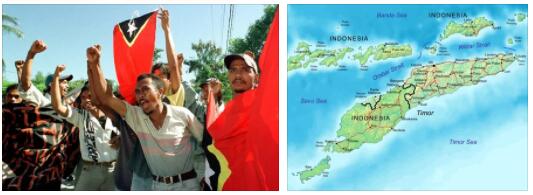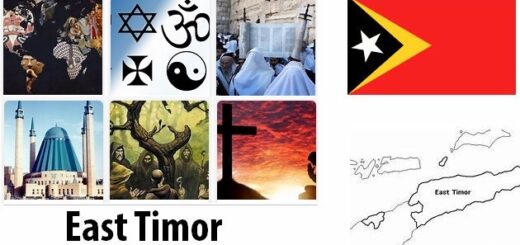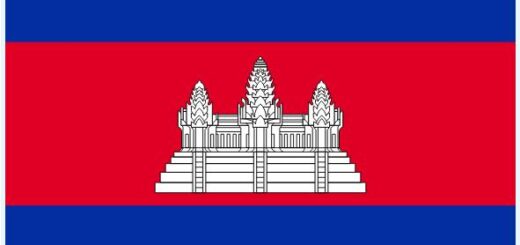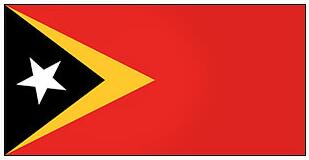Politics and Economy of East Timor
State structure and political system of East Timor
East Timor is a unitary democratic republic. Administrative division – 13 districts. Largest cities: Dili, Baucau, Liquica. Check equzhou for political system of East Timor.
The highest legislative body is the national parliament, which has broad powers of authority. Consists of 88 deputies, including the prime minister and members of the government. The main powers of the executive power are concentrated in the hands of the prime minister, who is appointed by the president on the proposal of the parliamentary majority.
The head of state is the president (currently Xanana Gusmão), elected by direct vote for a term of 5 years. In accordance with the Constitution, he is the symbol and guarantor of national unity, independence and the existence of effective democratic institutions, as well as the supreme commander of the defense forces of East Timor. The President of the Parliament is Francisco Gutierres. The Prime Minister is Mari Alkatiri.
The creation of an effective system of government is hampered by the lack of clarity regarding the division of powers between the legislative, executive and judiciary. However, in Ser. In 2002, Parliament passed its first law on the publication of acts of state and subsequently laws on a number of important issues, including the status of judicial magistrates, the law on citizenship, the law on the passport and the law on the maritime boundaries of East Timor. A draft law on land and state property was submitted for consideration.
Approx. 15 political parties and organizations. The leading force is the Revolutionary Front for the Liberation of East Timor (FRETILIN), which led the struggle for independence and is now the de facto ruling party. Others include the People’s Democratic Association of Timor (APODETI), the East Timorese Popular Front, Christian Democratic Party, Social Democratic Party, etc. Check homeagerly for democracy and human rights of East Timor.
The presence of a contingent of international peacekeeping forces ensures a fairly high level of internal political stability. The primary domestic political task is to activate the course of national reconciliation and the consolidation of society as essential conditions for the further existence of a single independent state. Moreover, in 2002, the first signs of dissatisfaction with the socio-economic policy of the authorities on the part of the urban strata were noted; veterans of the resistance came forward with demands to recognize their role in the struggle for independence.
According to the Constitution, in foreign policy the country is guided by the development of friendly relations with all states, based on cooperation, mutual equality, respect for sovereignty, territorial integrity and human rights in the interests of the peaceful settlement of conflicts, disarmament, and the creation of a just international economic order. The constitution also establishes a focus on privileged relations with the countries of the Portuguese-speaking community and special ties of friendship and stability with neighboring states.
The immediate priority is the speedy final normalization of relations with Indonesia. In this direction, important incentives were the presence of Indonesian President Megawati Sukarnoputri at the celebrations dedicated to the declaration of independence of East Timor, and the subsequent visit to Jakarta by S. Gusmau, as well as the decision to create a joint ministerial commission on bilateral cooperation. K ser. 2003 it was planned to finalize the agreement on the line of the land border in accordance with historical agreements.
With the support of the UN mission, the formation of the Armed Forces and border services is underway. In 2003 it is planned to equip two battalions. In the presence of external assistance, the Armed Forces will be fully formed by Ser. 2004.
East Timor has had diplomatic relations with Russia since June 2002.
Economy of East Timor
East Timor belongs to the group of the most backward countries in Asia and Africa. GDP $228 million, GDP per capita $304 (1999 est.). Unemployment 70%. inflation ok. 3%.
The basis of the economy is agriculture, in which St. 80% of the population. The main products are coffee (up to 10 thousand tons are produced annually), maize, and rice. Fishing and woodworking are poorly developed.
There are no railroads. Length of highways approx. 4 thousand km. A fairly active expansion of the road network began. Work is underway to deepen the port of Dili, the country’s main sea terminal. Airports are available in Dili and Baucau.
Domestic trade (wholesale and retail), as well as hotel and restaurant business provide approx. 11% of GDP (1998). Tourism has no noticeable development.
After the transfer of control to the UN Transitional Administration, the country existed thanks to large external financial support, carried out both within the framework of the international club of donors, and on a bilateral basis. Major donor countries: Japan, USA, Australia.
The social and economic policy of the government is determined by the goals of the national development plan, medium-term financial targets and the annual budget agreed with international donor agencies, bilateral partners and foreign non-governmental organizations.
The state budget ($92 million) was formed from external revenues. Capital expenditures were negligible. Approximately 56% of all public spending was spent on developing the education system and supporting economic activity.
The main hopes for the formation of an economically secure state are associated with the expected start in 2005 of proceeds from the joint extraction of hydrocarbon raw materials from the Timor Depression with Australia. Estimated profit of St. $7 billion over 20 years. In May 2002, an agreement was signed with Australia.
The standard of living of the population is extremely low. 2/3 of the population lives below the official poverty line.
Foreign trade (1998, million US dollars): 190, export 55, import 135. Export – coffee, sandalwood, import – food, vehicles, construction equipment.
Science and culture of East Timor
The education system is limited to primary and secondary schools, often under Catholic missions.
Rich folk art. East Timorese traditional dances are famous. In the melodies of the songs, the influence of Portuguese music is noticeable.



